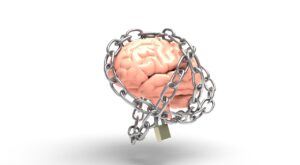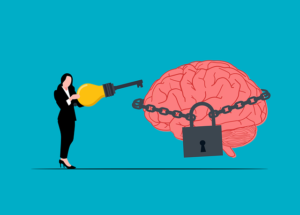
Mental health conditions affect millions of people globally, with many suffering from common disorders such as depression and anxiety. However, there are also rare mental health conditions that few people know about. These conditions often go unnoticed and are not talked about enough, leading to stigmatization and isolation of those who suffer from them. In this article, I will explore some of these rare mental health conditions, including Clinical Lycanthropy, Depersonalization/Derealization Disorder, Diogenes Syndrome, Stendhal Syndrome, Apotemnophilia, Alien Hand Syndrome, Capgras Syndrome, and Alice in Wonderland Syndrome.
Introduction to Rare Mental Health Conditions
Rare mental health conditions are those that affect a small percentage of the population. They are often difficult to diagnose and treat, and many healthcare professionals have limited knowledge about them. These conditions can range from mild to severe, and some can be life-threatening. Unfortunately, due to the lack of awareness, many people with rare mental health conditions suffer in silence. It is essential to raise awareness about these conditions to promote empathy, understanding, and better treatment options.
Clinical Lycanthropy: Understanding the Werewolf Delusion
Clinical Lycanthropy is a rare mental health condition that makes people believe they can transform into animals, particularly werewolves. Individuals with this condition often have a strong belief that they have changed into an animal or are in the process of transforming. This condition is prevalent in people with underlying mental health conditions such as schizophrenia and bipolar disorder.
Clinical Lycanthropy is a complex condition that often goes unnoticed. People with this condition may feel isolated and fear judgment from others. However, with proper diagnosis and treatment, including therapy and medication, people with Clinical Lycanthropy can lead fulfilling lives.
Depersonalization/Derealization Disorder: Losing Touch with Reality
Depersonalization/Derealization Disorder is a rare mental health condition that causes individuals to feel detached from themselves and their surroundings. People with this condition may feel like they are watching themselves from a distance or living in a dream-like state. The condition can be triggered by stress, trauma, or substance abuse.
Depersonalization/Derealization Disorder can be extremely distressing and can affect an individual’s daily life. People with this condition may struggle to perform everyday tasks or maintain relationships. However, with proper treatment, including therapy and medication, people with Depersonalization/Derealization Disorder can learn to manage their symptoms and live fulfilling lives.
Diogenes Syndrome: When Hoarding Becomes Extreme
Diogenes Syndrome is a rare mental health condition that causes individuals to hoard items to an extreme level. People with this condition may collect large amounts of garbage or unnecessary items and refuse to throw them away. They may also neglect personal hygiene and refuse help from others.
Diogenes Syndrome is often associated with underlying mental health conditions such as depression and anxiety. People with this condition may struggle to maintain relationships and may feel isolated. However, with proper treatment, including therapy and medication, people with Diogenes Syndrome can learn to manage their symptoms and lead fulfilling lives.
Stendhal Syndrome: When Art Becomes Overwhelming
Stendhal Syndrome is a rare mental health condition that causes individuals to experience overwhelming emotions when exposed to art or beauty. People with this condition may feel dizzy, faint, or have heart palpitations when viewing art or visiting beautiful places.
Stendhal Syndrome can be triggered by stress, anxiety, or other underlying mental health conditions. People with this condition may feel isolated and fear judgment from others. However, with proper treatment, including therapy and medication, people with Stendhal Syndrome can learn to manage their symptoms and enjoy art and beauty without fear.
Apotemnophilia: The Desire for Amputation
Apotemnophilia is a rare mental health condition that causes individuals to have a strong desire to amputate a healthy limb. People with this condition may feel like their limb does not belong to them and may feel compelled to remove it.
Apotemnophilia is often associated with underlying mental health conditions such as depression and anxiety. People with this condition may feel isolated and fear judgment from others. However, with proper treatment, including therapy and medication, people with Apotemnophilia can learn to manage their symptoms and lead fulfilling lives.
Alien Hand Syndrome: The Strange Case of Uncontrollable Limbs
Alien Hand Syndrome is a rare mental health condition that causes an individual’s hand to move involuntarily. People with this condition may feel like their hand does not belong to them and may struggle to control its movements.
Alien Hand Syndrome can be extremely distressing and can affect an individual’s daily life. People with this condition may struggle to perform everyday tasks or maintain relationships. However, with proper treatment, including therapy and medication, people with Alien Hand Syndrome can learn to manage their symptoms and live fulfilling lives.
Capgras Syndrome: Believing Loved Ones Have Been Replaced
Capgras Syndrome is a rare mental health condition that causes individuals to believe that their loved ones have been replaced by imposters. People with this condition may feel like their relatives or friends have been kidnapped or replaced by identical-looking imposters.
Capgras Syndrome is often associated with underlying mental health conditions such as schizophrenia and dementia. People with this condition may feel isolated and fear judgment from others. However, with proper treatment, including therapy and medication, people with Capgras Syndrome can learn to manage their symptoms and lead fulfilling lives.
Alice in Wonderland Syndrome: When Perception Becomes Distorted
Alice in Wonderland Syndrome is a rare mental health condition that causes individuals to experience distorted perceptions of their body and surroundings. People with this condition may feel like they are shrinking or growing, or objects around them are changing size or shape.
Alice in Wonderland Syndrome can be triggered by stress, migraines, or underlying mental health conditions. People with this condition may feel isolated and fear judgment from others. However, with proper treatment, including therapy and medication, people with Alice in Wonderland Syndrome can learn to manage their symptoms and lead fulfilling lives.
Exploring Hysteria: A Historical Perspective
Hysteria is a term used to describe a group of symptoms that affect women, including anxiety, depression, and uncontrollable emotions. The term came to be associated with women in the 19th century and was often used to discredit women’s experiences and emotions.
Hysteria has been extensively studied and is now recognized as a legitimate mental health condition that affects both men and women. People with hysteria may experience a range of symptoms, including physical pain, anxiety, and depression. With proper diagnosis and treatment, including therapy and medication, people with hysteria can learn to manage their symptoms and lead fulfilling lives.
Unveiling the Enigma: Rare Mental Health Conditions in Popular Culture
Rare mental health conditions are often featured in popular culture, including movies, TV shows, and books. These portrayals can be harmful and perpetuate stereotypes and stigmatization of those who suffer from these conditions.
It is essential to promote accurate and empathetic portrayals of rare mental health conditions in popular culture. This can help to reduce stigmatization and promote understanding and empathy for those who suffer from these conditions.
Conclusion: Promoting Understanding and Empathy for Those with Rare Mental Health Conditions
Rare mental health conditions often go unnoticed, leading to stigmatization and isolation of those who suffer from them. It is essential to raise awareness about these conditions to promote empathy, understanding, and better treatment options. With proper diagnosis and treatment, people with rare mental health conditions can learn to manage their symptoms and lead fulfilling lives. Let us all work towards promoting a world that is more understanding and empathetic towards those with rare mental health conditions.




